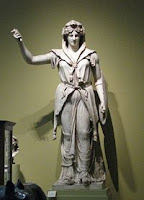
The eponymous title and heroine of this film brings the asteroid Juno into the public gaze. My teenager and I loved the film (although I was hoping that it wasn’t too influential!). I felt that giving up the baby was unrealistically ‘easy’ and the protagonists parents would have taken care of the baby in real life. This film is perhaps upsetting for adopted children especially as Juno ends up with the father, may continue to marry him and have children with him later in life. For adoptees, discovering that their birth parents went onto marry and keep their other children is very difficult…’Why not me?’
“is also known as Hera, has attributes similar to those of Venus, but whereas Venus is the initial attraction or infatuation, Juno is about the commitment that may or may not follow. It relates to marriage and partnerships, and can indicate by the sign it is posited in the kind of qualities admired in another person. It is representative of attraction, receptivity and compatibility with others. It is the wife or the woman’s role in an intimate relationship.
Wherever you find Juno in the birthchart is where you will find indications of where you are most likely to meet someone with whom you may have a long-term, committed relationship.”
Keywords and what it rules:
Abuse (by spouse), agreements, atmosphere, attraction, compatibility, contracts, divorce, fairness, fear of abandonment, flowers, infidelity, jealousy, marriage, partnership, possessiveness, receptivity, separation, soul mate, trust, vulnerability, weather, wife
So maybe the film should have been called ‘Ceres’ instead which rules children and nurturing but that doesn’t have quite such a ring about it does it?
In the film Juno is (unusually) abandoned by her birth mother and lives with her father and (for once not wicked) step-mother. Juno goes on to complete this pattern by effectively abandoning her own child to a not so wicked step-mother.
Note that June, the month when most couples get married, is named after Juno. Her festival on March 1st is called Matronalia (love that name) and was the first day of the new year prior to the Julian calendar.
Astronomically Juno was originally considered a planet, along with 1 Ceres, 2 Pallas, and 4 Vesta. It was re-classified as an asteroid, with the other three, when many more additional asteroids were discovered.




Hello there,
I just found your blog by chance and I am truly astonished by your work. I really think you ought to write a book… Your descriptions were fascinating and marvelous to read.
Keep going, Marmite Lover!
lol